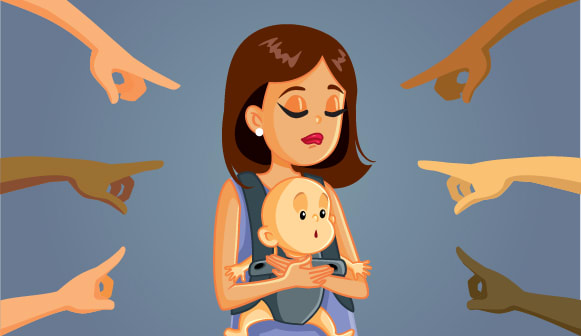
Introduction
Parenting is a beautiful, challenging, and rewarding journey. However, along the way, many parents experience a common but often unspoken emotion: parental guilt. Whether it’s feeling like you’re not doing enough, or questioning your decisions, parental guilt can sometimes feel overwhelming.
In this article, we will explore what www.sottobosco .info is, its causes, its effects, and most importantly, how you can manage and overcome it. Let’s dive into this complex emotion and discover ways to ease the burden it places on parents.
What is Parental Guilt?
Parental guilt is an emotional experience that many parents face, characterized by feelings of inadequacy or concern about whether they are making the right choices for their children. It’s that nagging feeling that you’re not doing enough or that you’re somehow failing your child, despite your best intentions.
This guilt can stem from a variety of situations—from not spending enough time with your children to making decisions you regret. It often involves overthinking your choices and worrying that you might be causing harm, even when that’s not the case.
Common Causes of Parental Guilt
Parental guilt can stem from many sources, including:
- Work-Life Balance: Parents may feel guilty for not spending enough time with their children due to work commitments or personal obligations.
- Disciplinary Choices: Guilt over whether the methods you use to discipline your child are effective or too harsh can weigh heavily on parents.
- Comparing to Other Parents: The rise of social media can make it easier for parents to compare themselves to others, leading to guilt if they feel they aren’t measuring up.
- Not Meeting Expectations: Whether it’s societal pressure or internal expectations, parents often feel they should be perfect in every aspect of parenting.
- Not Providing Enough for Their Children: Some parents experience guilt if they feel they cannot afford certain opportunities or experiences for their kids.
- Time Away from Children: Many parents struggle with guilt when they take time for themselves, whether it’s for self-care, work, or leisure.
The Impact of Parental Guilt on Mental Health
Parental guilt, if left unchecked, can have a significant impact on mental health. It can lead to feelings of anxiety, stress, and depression. Parents may become consumed by the constant worry that they’re not doing enough, which can affect their self-esteem and overall well-being.
In extreme cases, chronic guilt can result in burnout, a condition where parents feel emotionally and physically drained, often to the point of exhaustion. This can negatively affect the parent-child relationship and make it more difficult to parent effectively.
Is Parental Guilt Normal?
Yes, parental guilt is a completely normal emotion. It’s natural to want the best for your child, and with such high stakes, it’s easy to feel like you’re falling short. However, it’s important to recognize that feeling guilty doesn’t mean you’re a bad parent. In fact, the very fact that you care so much about doing the right thing is an indication of your love and commitment to your child.
While occasional guilt is a part of parenting, it’s crucial not to let it dominate your emotional landscape. Healthy levels of guilt can motivate you to be more attentive or try harder, but excessive guilt can be counterproductive and harmful.
How Parental Guilt Affects Parenting
Parental guilt can manifest in several ways that may impact how parents approach their children. Some common effects include:
- Overcompensating: Parents may try to make up for their perceived shortcomings by overindulging their child or letting them get away with things they shouldn’t, leading to inconsistent parenting.
- Avoiding Important Conversations: Guilt may prevent parents from setting necessary boundaries or having challenging discussions with their children.
- Overburdening Themselves: Parents with guilt often feel like they need to be everywhere and do everything, leading to burnout and exhaustion.
- Second-Guessing Decisions: Constantly questioning whether decisions are right can create indecisiveness and stress, further contributing to feelings of guilt.
Dealing with Parental Guilt
Here are a few strategies to help manage and reduce parental guilt:
1. Acknowledge Your Feelings
The first step in overcoming guilt is acknowledging that you’re experiencing it. By identifying your feelings, you can gain control and begin addressing them.
2. Accept Imperfection
It’s important to accept that no one is perfect. Every parent makes mistakes, and that’s okay. What matters is learning from those mistakes and continuing to grow as a parent.
3. Reframe the Situation
Instead of seeing guilt as something negative, try to view it as a sign that you care deeply about being a good parent. Reframe the guilt into motivation to keep improving, rather than feeling like you’ve failed.
4. Focus on the Big Picture
Remember that parenting is a long journey. One mistake or misstep doesn’t define you as a parent. Focus on the positive contributions you’re making and your child’s overall well-being.
Setting Realistic Expectations
One of the best ways to manage parental guilt is by setting realistic expectations. It’s easy to get caught up in the idea that you need to be a “super parent” who does everything perfectly. However, this is an unrealistic standard.
Set attainable goals for yourself and your family. Recognize that it’s okay to have off days, to make mistakes, and to ask for help. A balanced approach will help alleviate unnecessary guilt and stress.
The Role of Self-Compassion in Overcoming Guilt
One of the most powerful tools for overcoming parental guilt is self-compassion. Being kind and understanding toward yourself when you make mistakes is essential for your mental health. Instead of criticizing yourself, try to treat yourself the way you would treat a friend who is going through a difficult time.
Remind yourself that you’re doing the best you can with the knowledge and resources available to you. Self-compassion helps to ease guilt and promotes emotional well-being.
Seeking Support: Talking to Other Parents
It’s common for parents to feel isolated when dealing with guilt, but talking to other parents can be incredibly helpful. Parenting groups, whether in-person or online, offer a supportive space to share experiences and receive validation from others who are going through similar challenges.
Discussing feelings of guilt with others can help normalize the experience and provide perspective. You’ll likely find that many other parents feel the same way.
Mindfulness and Parental Guilt
Mindfulness can be a great way to manage negative emotions like guilt. By practicing mindfulness, parents can stay grounded in the present moment and avoid getting lost in self-blame or future worries.
Mindfulness techniques, such as deep breathing and meditation, can help clear the mind and reduce stress. Being mindful can also improve your connection with your child, as it helps you stay focused on the here and now rather than obsessing over past mistakes.
Reframing Guilt: Turning It into Motivation
Instead of letting guilt drag you down, try reframing it as a source of motivation. Use your feelings of guilt to inspire positive changes. For example, if you feel guilty about not spending enough quality time with your child, take steps to carve out intentional moments together.
Turning guilt into motivation allows you to focus on actionable steps, reducing the emotional weight of guilt while still addressing the issue at hand.
How Parental Guilt Can Strengthen Relationships
Interestingly, parental guilt can actually strengthen your relationships with your children. It shows that you care deeply about their well-being and are invested in being the best parent you can be. When you take steps to manage guilt and improve your parenting, it leads to healthier, more meaningful connections with your kids.
By modeling self-compassion, realistic expectations, and open communication, you teach your children that it’s okay to make mistakes and learn from them—an invaluable lesson for their own growth.
Parental Guilt and Self-Care
Parenting is demanding, and it’s easy to forget about taking care of yourself when you’re constantly focused on your child’s needs. However, neglecting self-care only makes guilt more overwhelming. When you prioritize your well-being, you’re better equipped to be present, patient, and loving toward your child.
Incorporate self-care activities into your routine—whether it’s exercise, reading, or simply relaxing—to help reduce guilt and recharge.
Conclusion
Parental guilt is a natural emotion that many parents experience. While it can feel overwhelming at times, it’s important to recognize that guilt doesn’t mean you’re failing as a parent. By acknowledging your feelings, setting realistic expectations, and practicing self-compassion, you can manage guilt and become a stronger, more confident parent. Remember, there’s no such thing as a perfect parent—what matters most is your love and commitment to your child.





